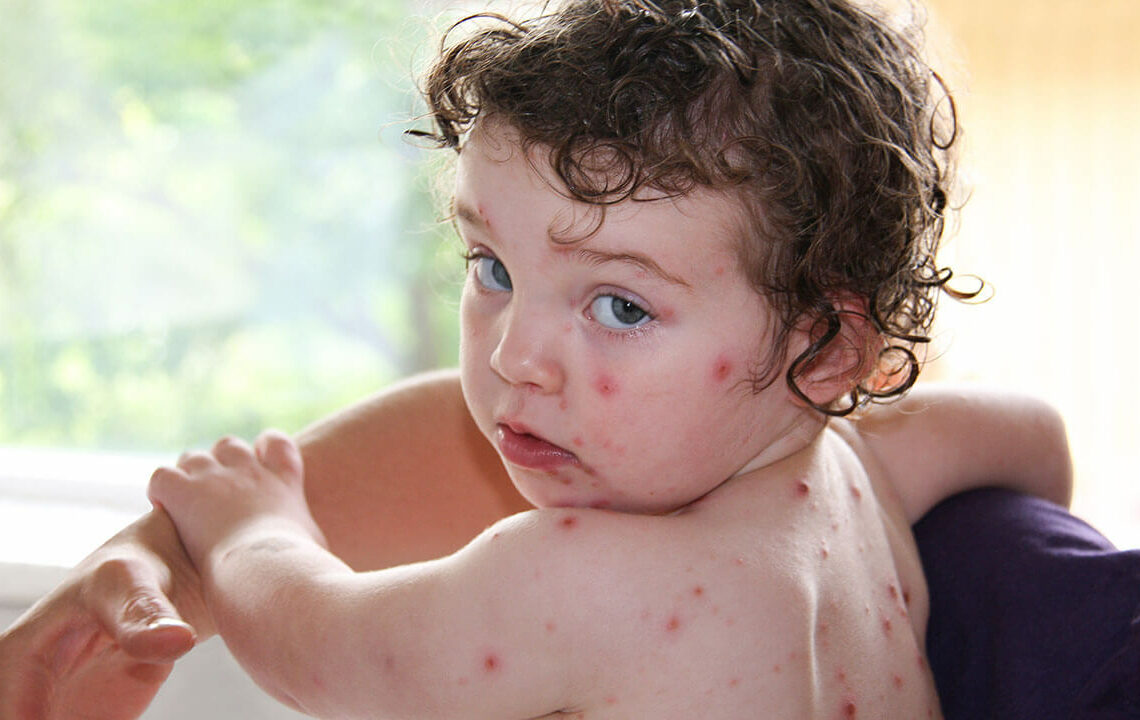Chickenpox, caused by the varicella-zoster virus, is a contagious viral infection that primarily affects children. While it’s often a mild illness, it can cause discomfort and itching. Recognizing, treating, and preventing chickenpox in kids involves several considerations:
Recognizing Chickenpox:
Rash:
The hallmark symptom is a red, itchy rash that often starts on the face, chest, and back and then spreads to other parts of the body.
Fever:
Children with chickenpox may have a fever before the rash appears.
Flu-Like Symptoms:
Headache, fatigue, and general malaise are common flu-like symptoms associated with chickenpox.
Fluid-Filled Blisters:
The rash progresses to fluid-filled blisters that eventually crust over and form scabs.
Itching:
Itching is a significant symptom, and scratching can lead to complications such as bacterial infections and scarring.
Treating Chickenpox:
Symptomatic Relief:
Provide symptomatic relief for fever and discomfort with acetaminophen or ibuprofen (consult with a Child Specialist in Islamabad for appropriate dosages).
Hydration:
Ensure the child stays well-hydrated by offering fluids like water, diluted fruit juices, or oral rehydration solutions.
Cool Baths:
Cool baths with baking soda or oatmeal may help relieve itching.
Avoid Scratching:
Trim the child’s nails and encourage them to avoid scratching to prevent secondary infections.
Calamine Lotion:
Calamine lotion or over-the-counter antihistamines may help alleviate itching.
Rest:
Ensure the child gets plenty of rest to support recovery.
Preventing Chickenpox:
Vaccination:
The most effective way to prevent chickenpox is through vaccination. The varicella vaccine is typically given as part of the routine childhood vaccination schedule.
Vaccinate Household Contacts:
If a child is not eligible for vaccination (e.g., due to age or certain medical conditions), vaccinating household contacts may help prevent exposure.
Isolation:
Keep an infected child away from others, especially pregnant women, newborns, and individuals with weakened immune systems.
Good Hygiene Practices:
Encourage good hygiene practices, including frequent handwashing, to prevent the spread of the virus.
Avoid Scratching:
Emphasize the importance of not scratching the rash to prevent complications.
Quarantine Period:
Keep a child with chickenpox home from school or daycare until all blisters have crusted over (usually about a week).
While chickenpox is generally a self-limiting illness, certain populations, such as pregnant women and individuals with weakened immune systems, may be at higher risk for complications. If there are concerns about a child’s symptoms or if complications arise, it’s important to consult with a Child Specialist for guidance and appropriate care. Always follow the advice of healthcare providers regarding vaccinations and other preventive measures.










